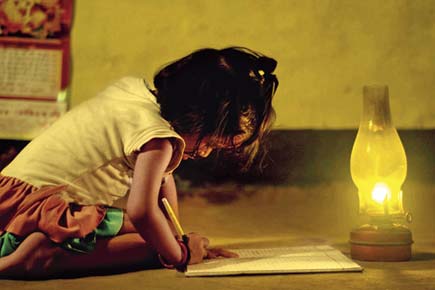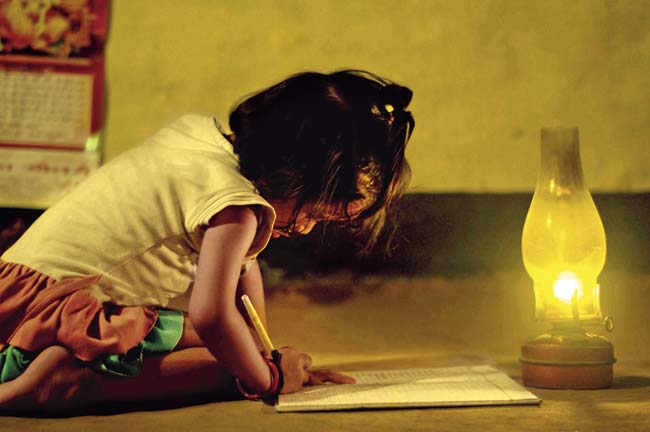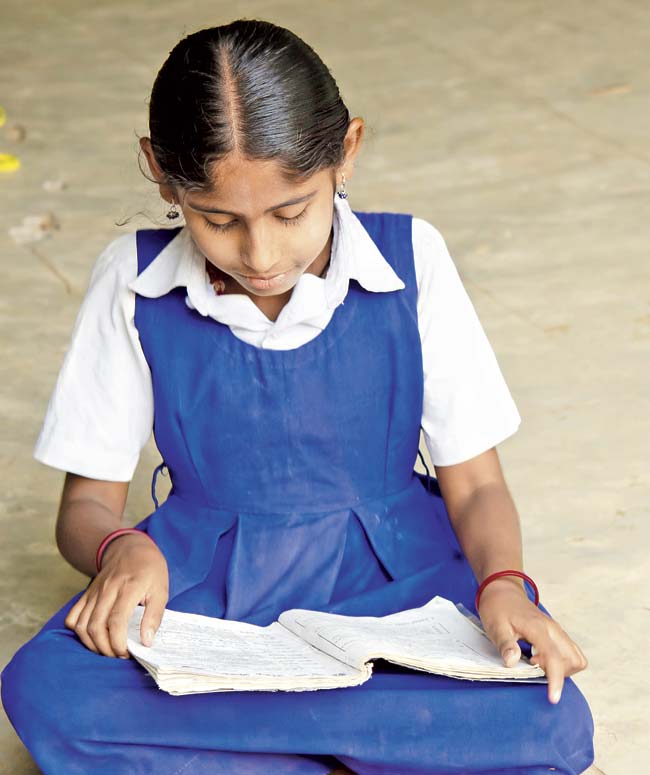A recent report authored by a six-member team of Tata Institute of Social Sciences highlights how nine out of 10 girls who enroll in schools across India do not complete their education

Tata Institute of Social Sciences, Indian education, survey, girls, school dropouts, Mumbai news
A new study about the status of girls in India made some shocking revelations. A report, titled World of India’s Girls (WINGS), the brainchild of Save the Children, a non-government organisation (NGO), which was authored by a six- member team of Tata Institute of Social Sciences in September 2014, highlights that 70.2 per cent of girls who enroll in schools across the country drop out before they finish Class 10.

The TISS study also reveals that lack of toilets discourages girls from attending schools
ADVERTISEMENT
In short, nine out of 10 girls who enroll in schools do not complete their education in India. The report further highlighted that twice as many girls drop out of schools as compared to boys. “The Material for this study was collected from the 2011 census as well as various other micro studies conducted by the government and other bodies across the world.

The 2011 census revealed a deficit of 7.1 million girls as against boys in the group of 0-6, a sizeable increase from 2001 census (6 million)
While we all know that the status of girls in the country needs to improve, the figures in this report clearly show that very little seems to be changing,” said Dr Bindulakshmi, associate professor at TISS and one of the members of the team behind this report.
She added that while a lot of importance was being given to enrollment of girls in schools, very little was being done to retain them. “Family pressure and lack of toilets in schools are two major causes for girls discontinuing their education. The issue of girls dropping out of school is much more startling at the higher education level,” she added.
WINGS 2014 highlighted issues including gender inequality (discrimination against girl child), right to education, rights that protect children from abuse, early marriage as well as measures taken by the government for protection of children.
Skewed sex ratio
The report stressed on how the skewed child sex ratio is still a major concern in our country. “Due to various reasons, we bear the tragic burden of being a country of disappearing daughters.
The 2011 census revealed a deficit of 7.1 million girls as against boys in the age group of 0-6 years, which is a sizeable increase from 2001 census (6 million) and 1991 census (4.2 million),” stated the report.
It further added that the common notion that ‘poor/uneducated families are more likely to commit female infanticide’ is being proved wrong over the years. The Muslim community (with lower social and economic indices) has a higher child sex ratio,” states the report.
People around the country lauded the implementation of the Right to Education (RTE) Act in 2009 but till date, gender inequality is evident in our education system. The Act definitely helped in larger enrollment of girls in schools across all boards.
However, according to data provided by the government in 2012, 58 per cent of all private school children in the age group of six-14 years were boys. Data also indicated that girls with special needs have lesser access to education than their male counterparts.
“Boys always get a preference over girls This is a known fact and the trend trickles down even when it comes to children with special needs. It’s the country’s cultural influences that should be blamed for such trends,” said Dr Mithu Alur, founder chairperson of ADAPT (Able Disabled All People Together), an NGO.
The report also highlighted other issues including early child marriage and sexual abuse in the country. A study conducted by the Ministry of Women and Child Development in 2007 showed that 45.3 per cent of the victims were girls.
"This report highlights topics that are known, but the fact that nothing seems to change in these issues over decades is a bigger problem. While working on this report, we gained a lot of insight into the major issues affecting the progress of the girl child in the India,” added Dr Bindulakshmi.
The TISS team made several recommendations in the report. The focus was mainly on making current policies about the girl child stringent. “It’s time to initiate action to put an end to these problems,” added Dr Bindulakshmi.
 Subscribe today by clicking the link and stay updated with the latest news!" Click here!
Subscribe today by clicking the link and stay updated with the latest news!" Click here!







